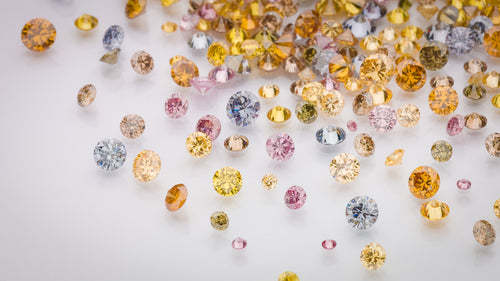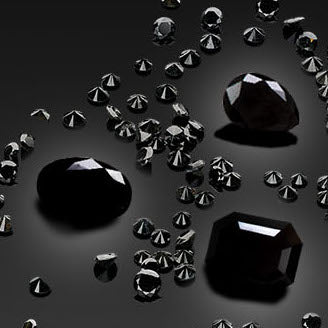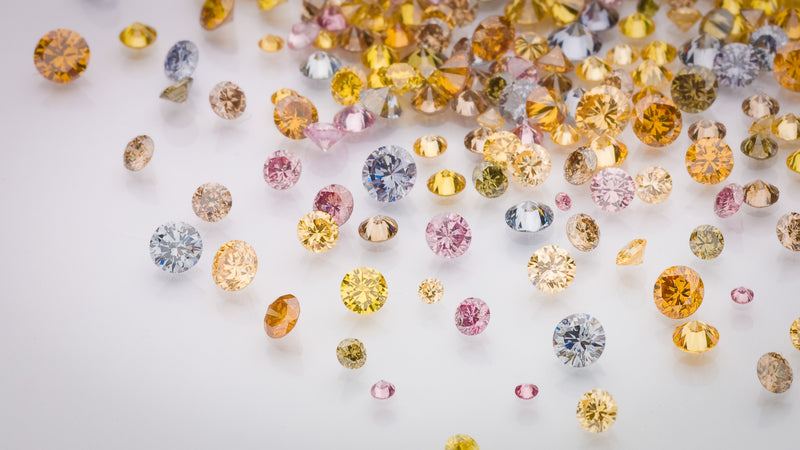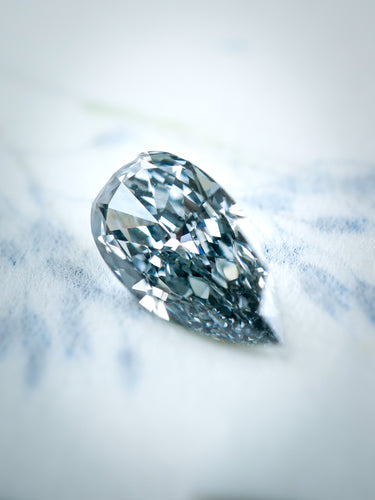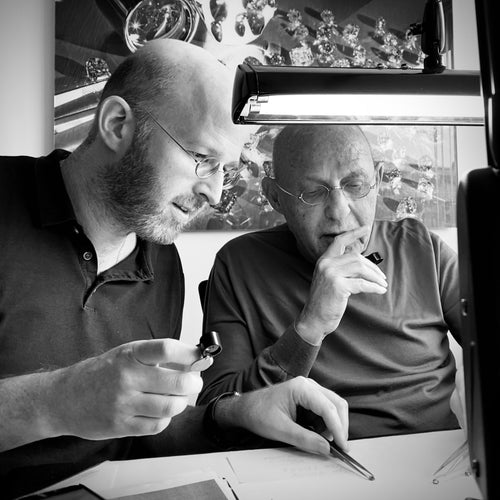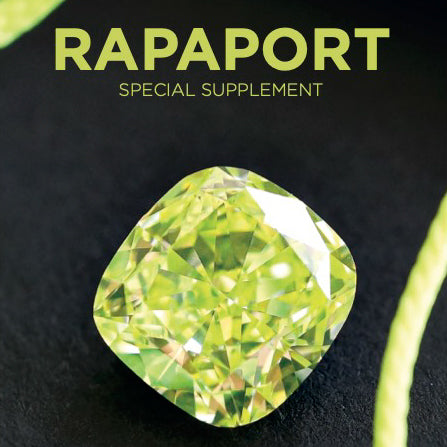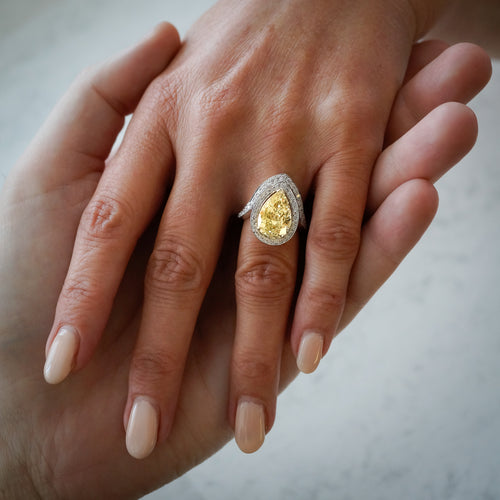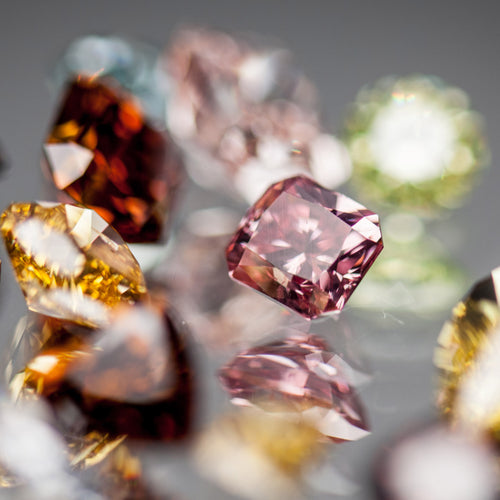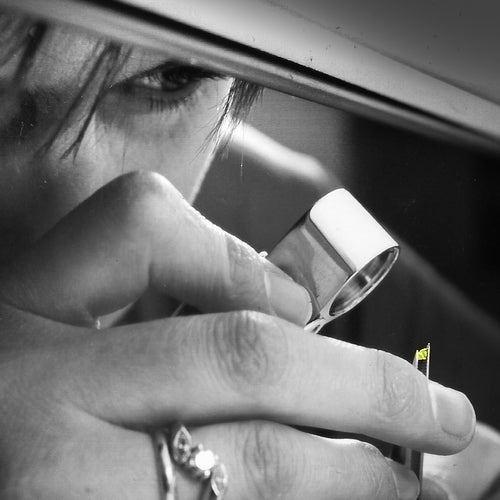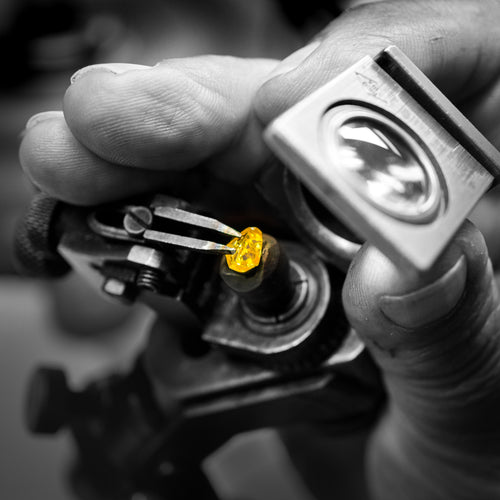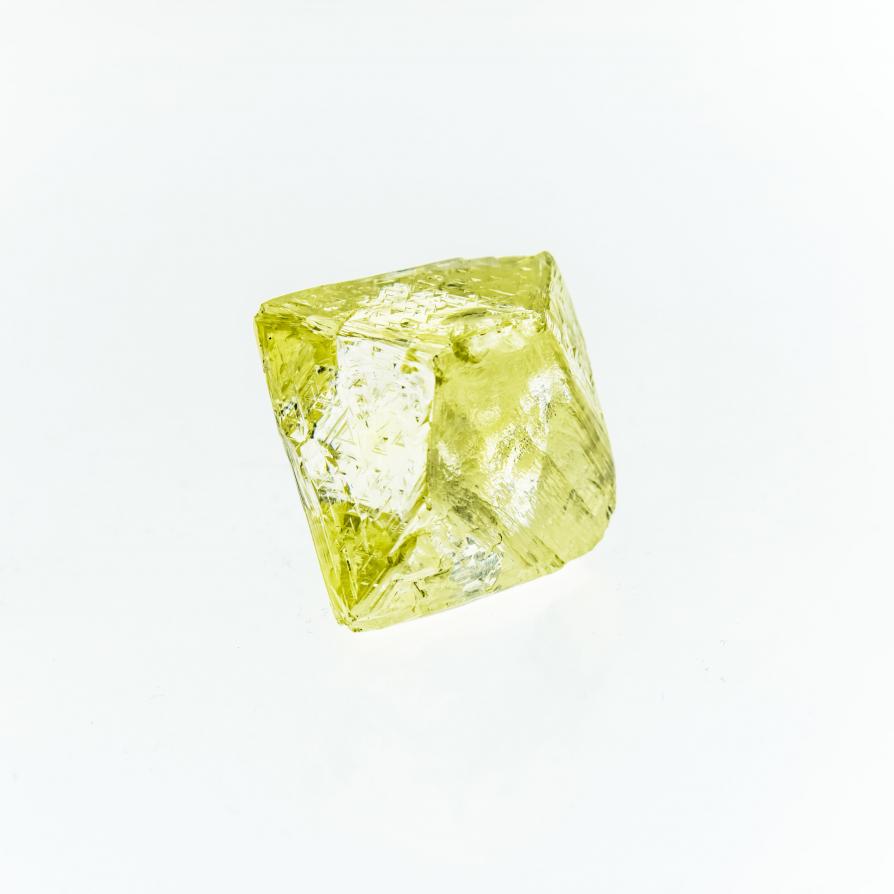

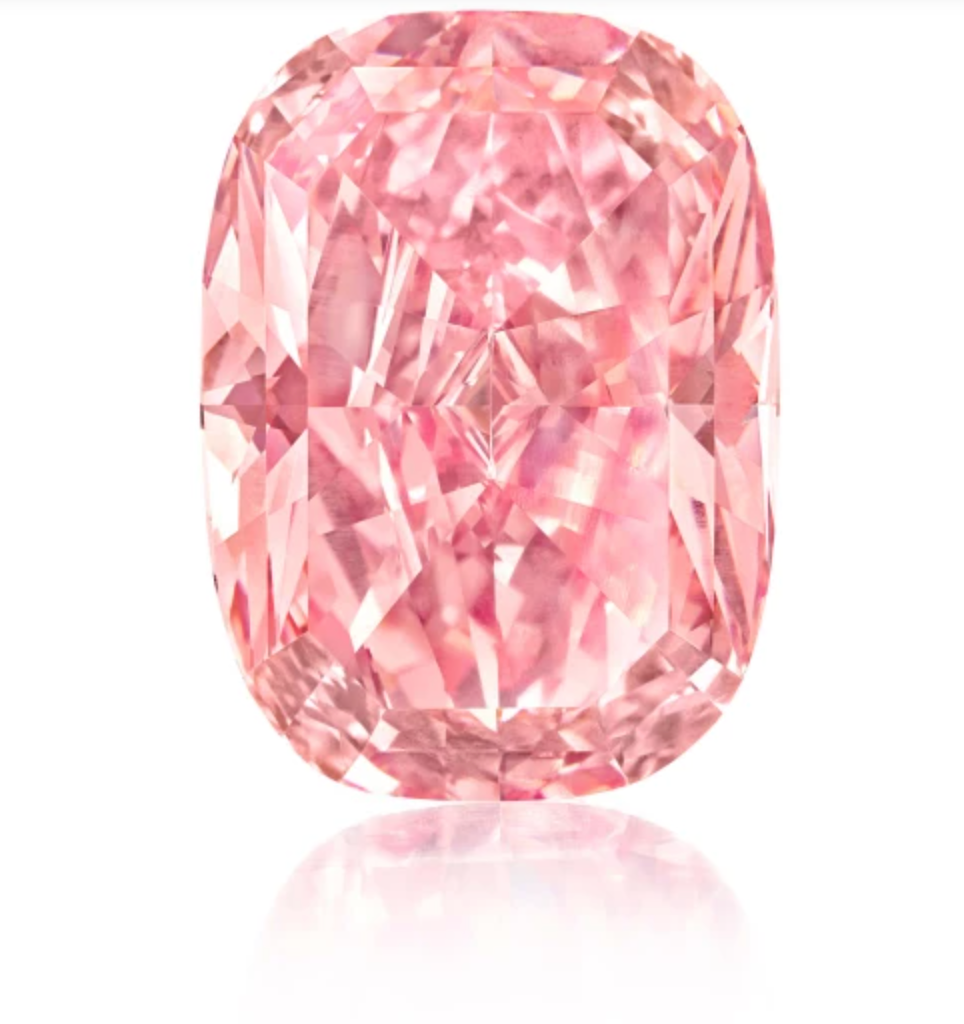

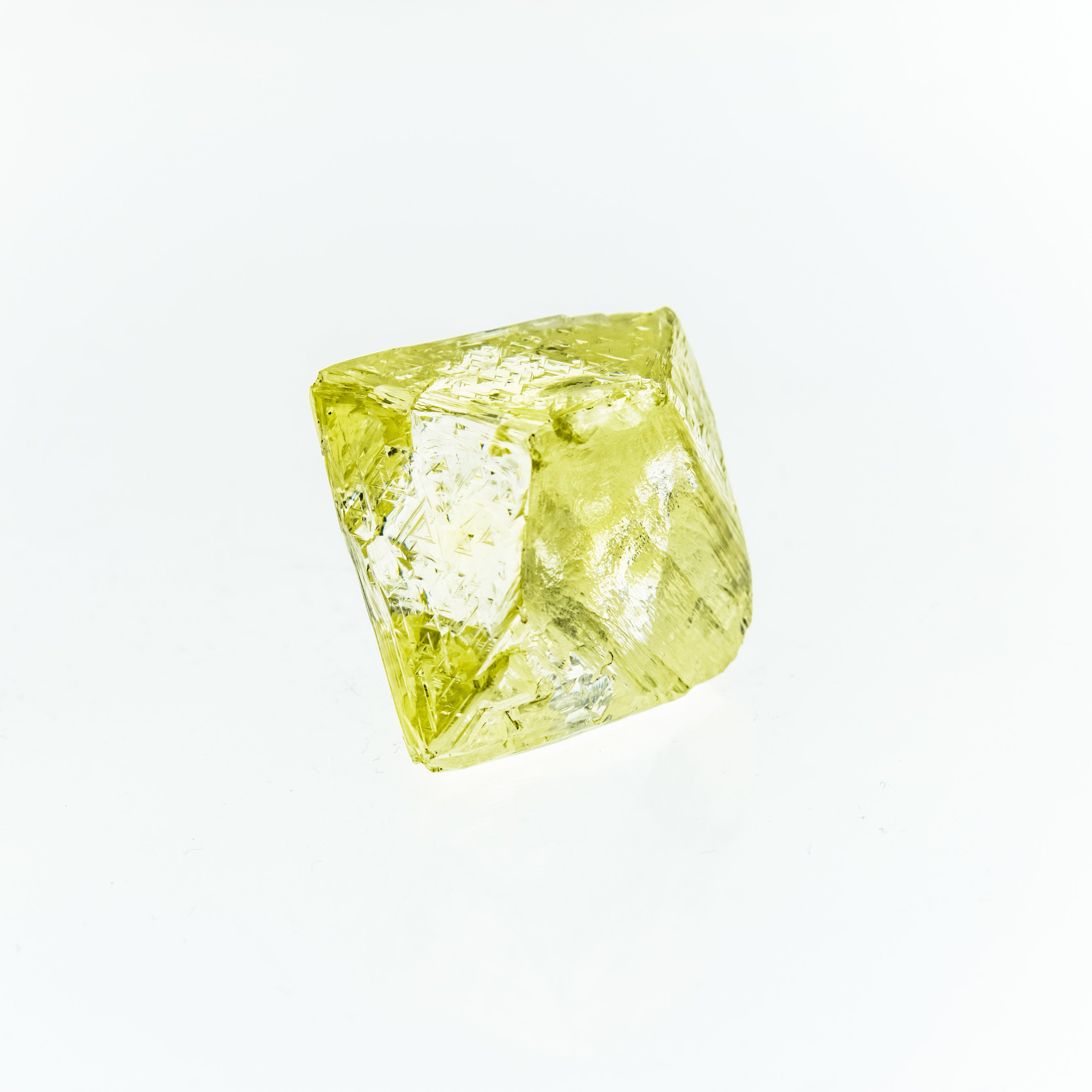
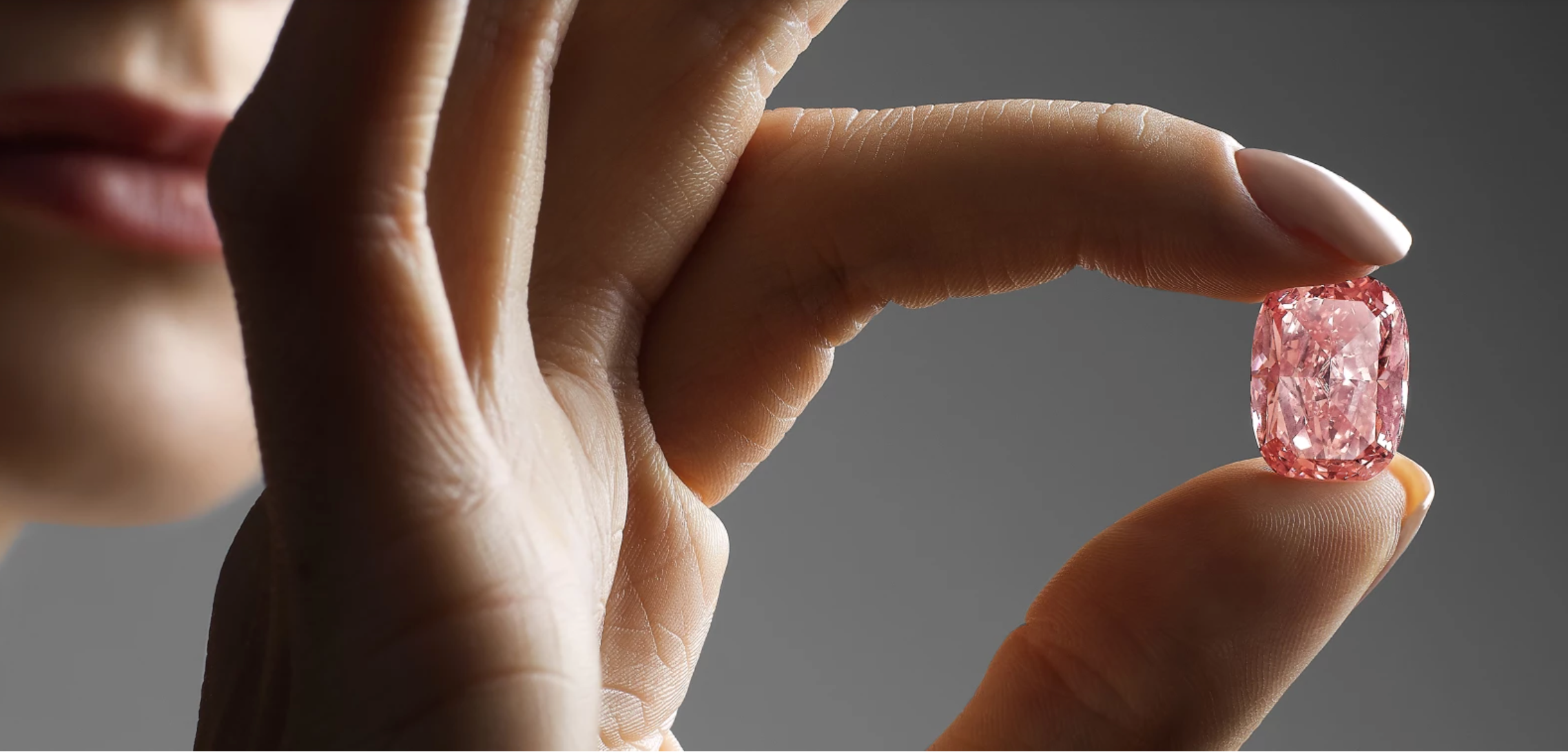
The Tiffany Diamond Reset to Celebrate the Company's 175th Anniversary
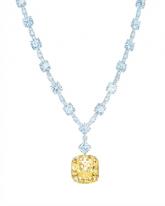
(Rapaport News) Tiffany & Co. marks it 175th anniversary this year by resetting the company’s icon -—the 128.54-carat Tiffany Diamond— in a spectacular diamond and platinum necklace. This legendary stone will take part in anniversary events in Tokyo, Beijing and Dubai, returning home to New York City, where Tiffany was founded in 1837.
The Tiffany Diamond is one of the world’s largest and finest fancy yellow diamonds. Tiffany’s own jewelry designers submitted innovative ideas and concepts for the new setting, and the result perfectly reflects their efforts. Skilled artisans meticulously hand-cut and set each diamond in the new modern, fluid design that rests lightly on the neckline, radiating light and energy with every movement. Over a year in the making, the elegant necklace of white diamonds totals over 120 carats and features 20 Lucida® diamonds and 58 brilliant-cut diamonds. The Diamond’s mounting, an openwork motif of sun rays, is designed with 481 sparkling stones.
“Resetting the Tiffany Diamond represents a commitment to the future and design innovation,” said Jon King, the executive vice president of Tiffany & Co. “The diamond is the most important gemstone in the world and honors the vision of our founder, whose acquisition of the stone established Tiffany’s diamond heritage.”

The diamond’s origin dates back to 1877 from the Kimberley diamond mines in South Africa. At 287.42 carats, the original rough stone was acquired the following year by founder Charles Lewis Tiffany and helped to solidify him as the “King of Diamonds” and made his enterprise the world’s diamond authority.
The rough stone was brought to Paris, where Tiffany’s chief gemologist, Dr. George Frederick Kunz, supervised the cutting of the diamond into a cushion-shape brilliant weighing 128.54 carats with an unprecedented 82 facets — 24 more facets than the traditional 58-facet brilliant cut. The stone is just over an inch wide and seven-eighths of an inch from top to bottom. Cut to enhance its radiant color rather than size, the diamond sparkles as if lit by an inner flame.
The Tiffany Diamond was the highlight of the jeweler’s award-winning exhibits at the 1893 World’s Colombian Exposition in Chicago; the 1901 Pan-American Exposition in Buffalo, New York; the 1933-34 Century of Progress in Chicago; and the 1939–40 World’s Fair in New York City. Later appearances included the 2006 Bejewelled by Tiffany exhibition at Somerset House in London, and an exhibition celebrating the National Gem Collection at the Smithsonian’s National Museum of Natural History.
The Diamond has been set on four previous occasions, two of which involve original designs by Jean Schlumberger, Tiffany’s renowned jewelry designer. The stone was set in Schlumberger’s Ribbon Rosette necklace to promote the 1961 film Breakfast at Tiffany’s; and it was mounted in Schlumberger’s Bird on a Rock setting for the designer’s 1995 retrospective at the Musée des Arts Décoratifs in Paris.

After its 2012 anniversary tour, the Tiffany Diamond in its new setting will return to its place of honor on the Main Floor of Tiffany’s Fifth Avenue flagship store.
In other news, the Conference Board Consumer Confidence Index® added three points from one year ago at 69.2 in April (benchmark 1985=100), The Expectations Index fell from April 2011 to 81.1 while the Present Situation Index improved some to 51.4 points.
Lynn Franco, the director of the Conference Board Consumer Research Center, observed that consumer confidence was virtually unchanged in April from March, following a modest decline. ''As was the case last month, the slight dip was prompted by a moderation in consumers’ short-term outlook, while their assessment of current conditions continued to improve. Overall, consumers are more upbeat about the state of the economy, but they remain cautiously optimistic.”
In April, those claiming business conditions are “good” increased to 15.3 percent from 14.3 percent in March. However, those claiming business conditions are “bad” edged up to 33.5 percent from 33.2 percent. Consumers’ appraisal of the job market remained mixed. Those stating jobs are “hard to get” declined to 37.5 percent from 40.7 percent in March, while those stating jobs are “plentiful” decreased to 8.4 percent from 9.0 percent.
